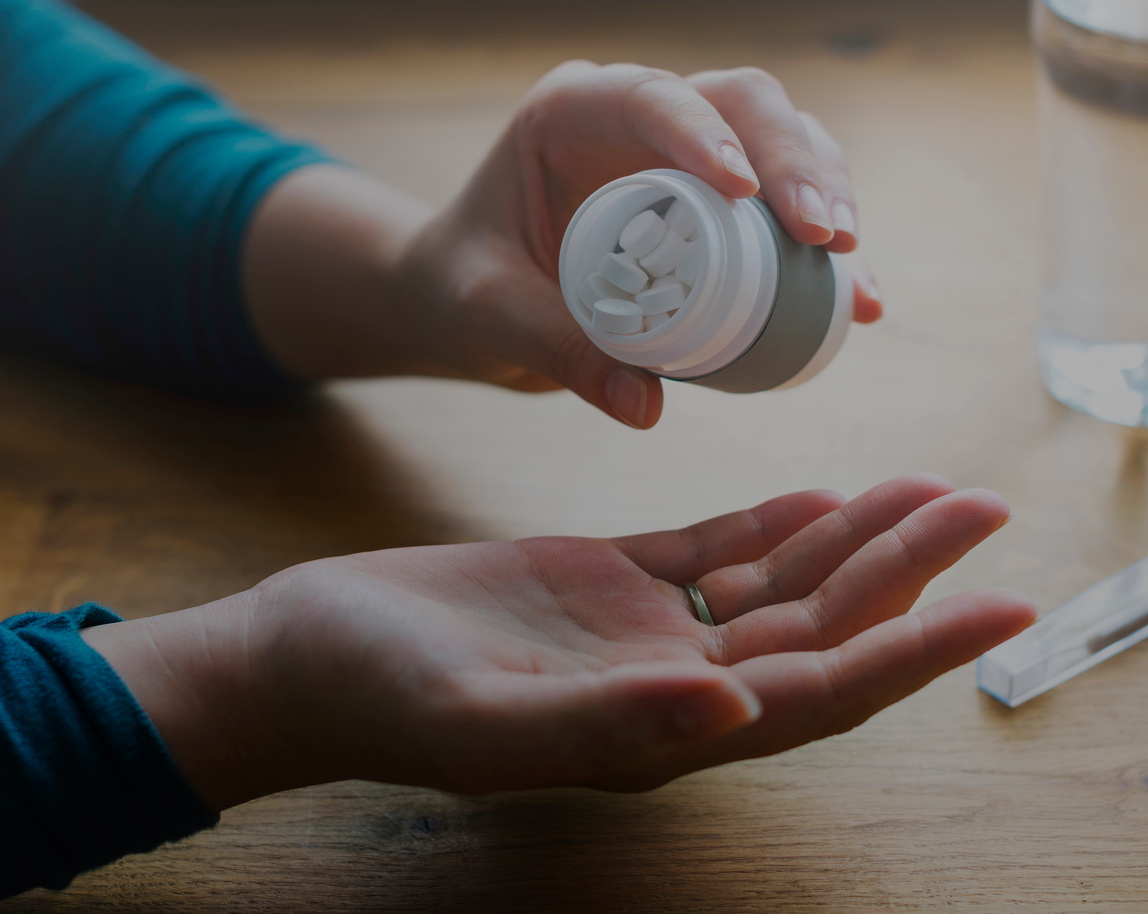How to refill a prescription without refills: Running out of medication can be stressful, especially when your prescription bottle shows zero refills remaining. Whether you’re dealing with a chronic condition requiring daily medication or facing an unexpected situation where you can’t reach your doctor, there are several reliable ways to obtain your essential medications without traditional refills.
Pharmacist consulting a customer about prescription medication at the pharmacy counter alamy
Understanding how to refill a prescription without refills System
Before exploring your options, it’s important to understand how prescription refills work. When your doctor writes a prescription, they specify how many refills you can receive without needing a new prescription. This number appears on your medication label, typically showing something like “Refills: 3” or “No refills remaining.”
The refill system exists for several reasons. It ensures you’re taking medications safely under medical supervision, prevents medication abuse, and gives healthcare providers opportunities to monitor your progress and adjust treatments as needed. However, life doesn’t always align perfectly with refill schedules, and that’s where alternative solutions become essential. According to the FDA’s prescription drug regulations, the refill system ensures medications are used safely under proper medical supervision.
Method 1: Contact Your Pharmacy First
Pharmacist explaining medication details to a customer at a pharmacy counter 123rf
Your pharmacy should be your first stop when facing a refill shortage. Pharmacists have more authority than many people realize when it comes to prescription management. Under certain circumstances, pharmacists can provide emergency refills for maintenance medications without requiring new prescriptions from doctors.
Emergency Refill Eligibility
Pharmacists can typically authorize emergency refills for essential medications including blood pressure medications, diabetes treatments, thyroid medications, asthma inhalers, and certain mental health prescriptions. These emergency refills usually provide a 3-7 day supply, giving you time to contact your healthcare provider for a new prescription.
The process involves the pharmacist reviewing your medication history, verifying the medication is essential for your health, and confirming you’ve been taking it regularly without issues. Most pharmacies maintain detailed records of your prescription history, making this verification process straightforward.
State-Specific Regulations
Emergency refill laws vary significantly by state. Some states allow pharmacists to provide up to 30 days of medication during declared emergencies, while others limit emergency refills to 72 hours. States like North Carolina permit up to 90-day supplies during medical service interruptions, whereas New Hampshire restricts emergency refills to 72-hour supplies only during natural disasters.
Method 2: Leverage Telemedicine Services

Person managing medication refills on a tablet using the MyReid app, illustrating digital prescription refill management reidhealth
Telehealth platforms have revolutionized prescription management, offering convenient solutions for refill requests. Many licensed healthcare providers can evaluate your medication needs through virtual consultations and authorize prescription renewals without in-person visits.
Popular Telemedicine Options
Services like Doctor On Demand, Sesame Care, and The CareMD specialize in prescription refills, with costs ranging from $34 to $99 per consultation. These platforms typically process requests within hours, sending prescriptions directly to your preferred pharmacy.
The process involves completing an online health assessment, uploading photos of your current medication bottles, and consulting with a licensed provider via video call. Providers can renew most maintenance medications but cannot prescribe controlled substances like opioids, ADHD medications, or benzodiazepines.
Method 3: Visit Urgent Care Centers
Urgent care clinics offer another reliable option for prescription refills, especially when your primary care physician isn’t available. These facilities specialize in non-emergency medical needs and can handle most prescription renewals.
Suitable Medications for Urgent Care Refills
| Medication Type | Examples | Typical Availability |
|---|---|---|
| Blood Pressure | Lisinopril, Amlodipine, Metoprolol | Usually Available |
| Diabetes | Metformin, Insulin | Usually Available |
| Asthma | Albuterol inhalers, Advair | Usually Available |
| Birth Control | Pills, patches, rings | Usually Available |
| Thyroid | Levothyroxine, Synthroid | Usually Available |
| Antibiotics | UTI treatments, infection medications | Usually Available |
| Controlled Substances | Opioids, ADHD medications | Rarely Available |
What to Bring to Urgent Care
Prepare for your urgent care visit by bringing your prescription bottle or a detailed medication list, your pharmacy’s contact information, relevant medical history, insurance card, and photo identification. This preparation streamlines the process and increases your chances of receiving the refill you need.
Method 4: Utilize Pharmacy Transfer Services
If you originally filled your prescription at a different pharmacy, you can request a prescription transfer to access remaining refills. This method works when you have authorized refills remaining but need to fill them at a new location.
Contact your preferred pharmacy and provide them with your original prescription information. They’ll contact your previous pharmacy to transfer the prescription and any remaining refills. This process typically takes 24-48 hours and doesn’t require doctor authorization if refills remain on the original prescription.
Method 5: Request Doctor Authorization Through Your Pharmacy
Many pharmacies can contact your healthcare provider directly to request refill authorization. This service, sometimes called a “prescriber request,” allows the pharmacy to advocate on your behalf for prescription renewals.
The Authorization Process
When you request a refill with zero refills remaining, most pharmacy systems automatically generate requests to your prescribing physician. The pharmacy sends your medication details, recent fill history, and refill request directly to your doctor’s office. Healthcare providers can then approve the refill electronically, often without requiring an office visit.
This process typically takes 2-3 business days for routine medications and up to one week for complex prescriptions requiring prior authorization from insurance companies.
Method 6: Explore Mail-Order Pharmacy Options

Person pouring pills from a medication bottle into their hand, illustrating medication usage and prescription management proficientrx
For patients managing chronic conditions, mail-order pharmacies often provide extended refill services and can coordinate directly with healthcare providers for prescription renewals. These services typically offer 90-day supplies and automatic refill programs that help prevent future refill shortages.
Many insurance plans provide cost advantages for mail-order prescriptions, and these pharmacies maintain dedicated teams for handling prescription renewals and prior authorizations.
Method 7: Access Patient Assistance Programs
When insurance complications prevent prescription refills, patient assistance programs can provide temporary medication supplies. Pharmaceutical companies, healthcare organizations, and charitable foundations offer programs that provide free or reduced-cost medications for qualifying patients.
SmileRx NJ Pharmacy Services
At SmileRx NJ, our experienced pharmacists understand the challenges of managing prescription refills. We offer comprehensive medication management services, including emergency refill evaluations, prescription transfer assistance, and coordination with healthcare providers for prescription renewals. Our team works diligently to ensure you never go without essential medications.
Important Considerations and Limitations
Controlled substance restrictions significantly limit refill options. Medications classified as Schedule II controlled substances (like opioids and stimulants) cannot be refilled and require new prescriptions for each fill. Schedule III and IV substances allow up to five refills within six months but have strict early refill limitations.
Insurance coverage may not apply to emergency refills or refills obtained through alternative methods. Contact your insurance provider to understand coverage limitations and potential out-of-pocket costs.
Documentation requirements vary by state and situation. Keep detailed records of emergency refills, including dates, quantities, and reasons for the emergency refill request.
Prevention Strategies for Future Refill Management
Set up automatic refill programs through your pharmacy to prevent future refill shortages. Most major pharmacies offer these services, automatically preparing your prescriptions for pickup when refills become due.
Use medication reminder apps to track when prescriptions will run out and when to request refills. Popular apps include Medisafe, MyTherapy, and pharmacy-specific applications.
Maintain emergency supplies when possible and medically appropriate. Discuss with your healthcare provider whether keeping a small backup supply of critical medications makes sense for your situation.
Schedule regular follow-up appointments with your healthcare provider to ensure prescription renewals align with your medication needs. Annual prescription renewals can simplify the refill process and reduce emergency situations.
Frequently Asked Questions
Can I get emergency refills for any medication?
No, emergency refills are typically limited to maintenance medications for chronic conditions. Controlled substances, antibiotics (unless recently prescribed), and certain specialized medications usually require new prescriptions from healthcare providers.
How long do emergency refills last?
Emergency refill quantities vary by state and pharmacy policy, typically ranging from 3-day to 30-day supplies. Most emergency refills provide enough medication to bridge the gap until you can obtain a new prescription from your healthcare provider.
Will insurance cover emergency refills?
Insurance coverage for emergency refills varies by plan and situation. Emergency refills may be subject to higher copays or may not be covered at all. Check with your insurance provider about emergency refill policies.
Can pharmacists refill expired prescriptions?
Pharmacists cannot refill expired prescriptions. However, they may provide emergency supplies of maintenance medications while you work to obtain a new prescription from your healthcare provider.
What’s the difference between a prescription refill and renewal?
A refill uses remaining refills authorized on your original prescription. A renewal requires a new prescription order from your healthcare provider, typically needed when all authorized refills have been used or the prescription has expired.
Prescription pill bottle with a label reading “Time to refill” and a single capsule inside, symbolizing the need to renew medication dreamstime
Running out of prescription refills doesn’t have to mean going without essential medication. By understanding your options and working with qualified healthcare providers and pharmacists, you can maintain consistent access to the medications you need. Remember that emergency refills are temporary solutions, and establishing regular communication with your healthcare provider remains the best approach for long-term medication management.
For residents in New Jersey seeking reliable prescription services, SmileRx NJ Pharmacy provides expert guidance and comprehensive medication management solutions to keep your health on track.